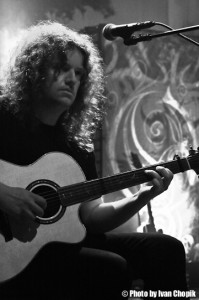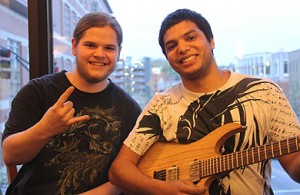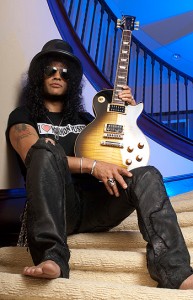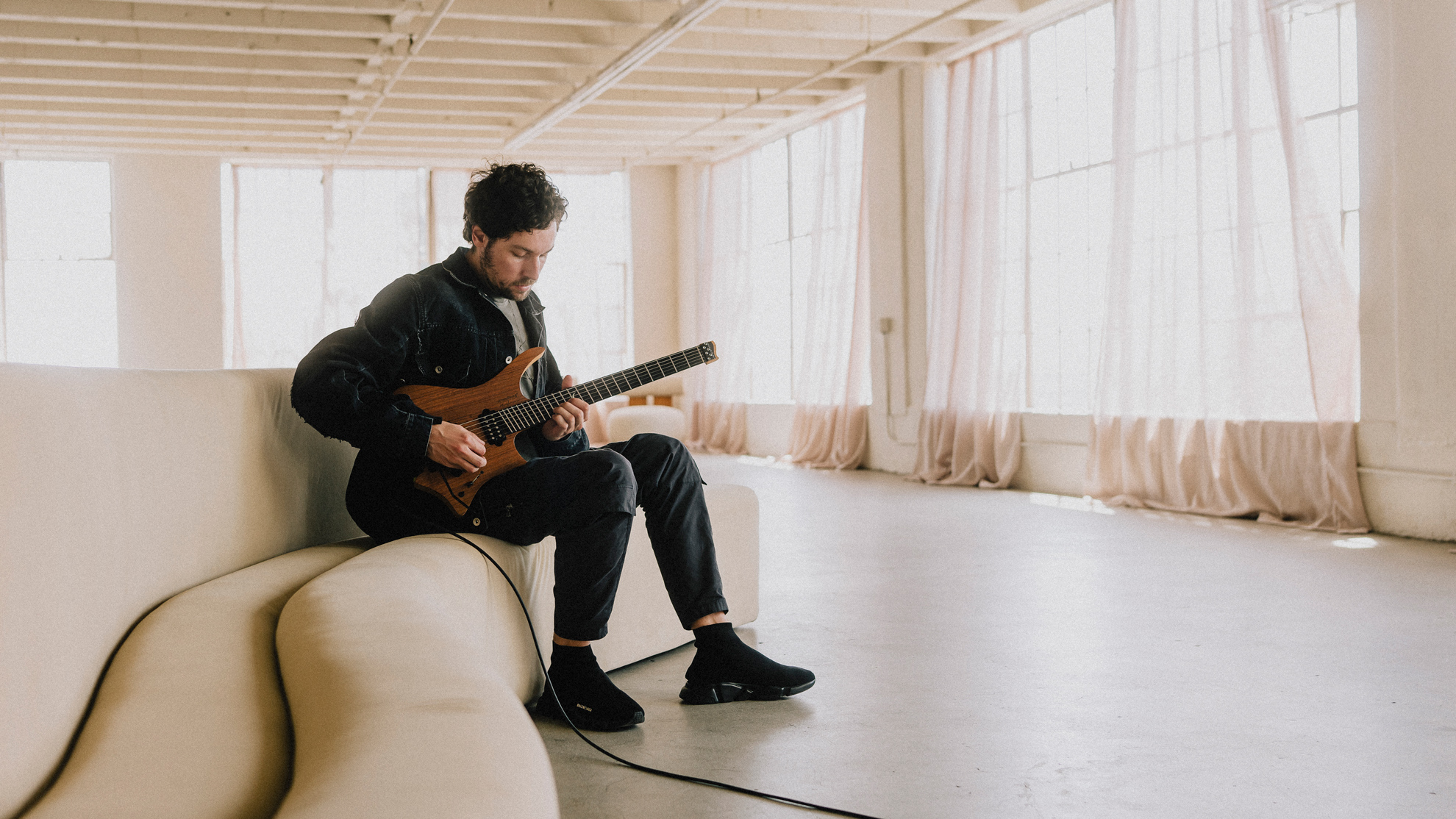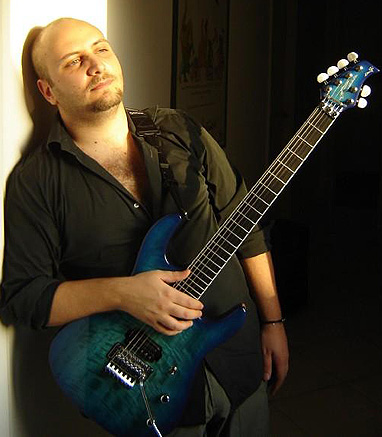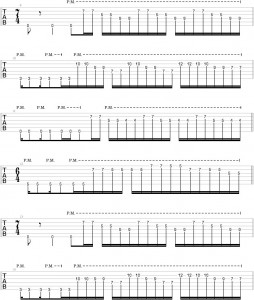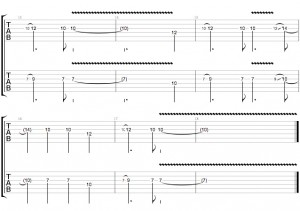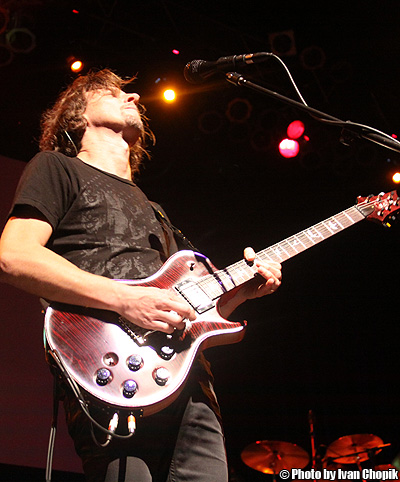 A multi-faceted guitarist, singer, and songwriter, John Wesley is best known for his work as touring guitarist and backing vocalist for British progressive rock luminaries Porcupine Tree. John hails from Tampa, Florida where he began his career in the early 80’s. In addition to his performance work, he has crafted a prolific recording career, including 5 solo albums which he both wrote and recorded. In a bold move, John released his entire studio catalog for free download in 2007.
A multi-faceted guitarist, singer, and songwriter, John Wesley is best known for his work as touring guitarist and backing vocalist for British progressive rock luminaries Porcupine Tree. John hails from Tampa, Florida where he began his career in the early 80’s. In addition to his performance work, he has crafted a prolific recording career, including 5 solo albums which he both wrote and recorded. In a bold move, John released his entire studio catalog for free download in 2007.
His most recent release, Shiver, mixed by Porcupine Tree’s Steven Wilson, highlights John Wesley’s intimate and earnest approach to songwriting, which is complemented by rich acoustic and electric guitar textures and his expressive, nuance-filled vocals.
In September 2009, Porcupine Tree released The Incident, a 2-disc album consisting of the title track, a captivating 55-minute song cycle, and a second disc of 4 independent compositions. John and I sat down to speak at one of the band’s first dates of the tour for the new album in Boston, MA:
IC: Porcupine Tree have been on the road for just a couple of weeks touring behind The Incident. How’s the tour coming along so far?
JW: Man, it clicked a lot faster than I thought it would. We did about eight days of rehearsals, and everyone just came in really knowing their stuff. So the second rehearsal was like: ‘Well, yeah, we’re just rehearsing it.’ It just really went good. For the eight days of rehearsal, I had about seven pages of notes, and by the end of that, I didn’t need them anymore. The first gig was good, but not as smooth as we’d like it to have gone. We had a couple of technical difficulties that we smoothed out in the second gig, and then by the time we hit Portland it was rolling from then on. We’re just clicking every night.
IC: Now obviously, ‘The Incident’ is a 55-minute epic. Are you guys playing the whole piece?
JW: Beginning to end. It starts the set. We’re doing the set in two halves – we’re doing the 55-minute complete ‘The Incident,’ and then we’re doing some of the older stuff in the second half of the set.
IC: How did you get involved with music back in Florida, and how did you eventually meet up with Steven and join Porcupine Tree?
JW: I started playing when I was a kid at 12 or 13 years old. I took piano lessons when I was 12, and rotated into guitar lessons just before I was 13. I played in bands all through high school, and then when I got out of high school I got a scholarship to go play guitar in college. I went to college for a couple of years. I taught my way through college, and about six months after college I was still teaching, and the band I was in was starting to make a little bit of a buzz, so we decided to go on the road.
There was a big circuit in the 80’s back then where you could play cover songs, and work in your own originals, and then you would showcase for a record label and try and get a deal. We never did anything more than independent records, but I played in that band from 1979 to 1991. When that ended, I just started doing a bunch of solo stuff, and releasing solo records, and ended up working as a support act for a band called Marillion – and to pay my way on that, I guitar teched as well.
| [flashvideo file=”https://guitarmessenger.com/wp-content/uploads/2009/09/Wesley-Full-Interview.flv” width=430 height=273 image=”https://guitarmessenger.com/wp-content/uploads/2009/09/John-Wesley-by-Ivan-Chopik-Video.jpg” /] |
So I could guitar tech during the day, get payed a salary, they take care of all of my travel expenses. I’d change my clothes, get a shower, go out and do the opening act as my own thing, sell records, and then go back and do guitar tech work. So I did probably 300 shows with those guys.
And then through that connection, I met their old lead singer, a guy named Fish, who was their singer through all their big hits in the 80’s, and I played guitar for him for three years. And Steven [Wilson] had just done a record with him, just produced a record for him called Sunsets on Empire. And then the record after that, Steve played all of the guitar – it was called Raingods with Zippos.
Now I actually came on to play live guitar for that tour, so Steve and I met at one of Fish’s big opening parties for that tour, and he was like: ‘Oh, man! You’re playing my guitar parts. I like the way you do that.’ So we formed a closer friendship. I had been a fan of the band for years – I had actually met them before earlier, in 1995. It was just a brief ‘Hi, hello.’ But I had been a fan of the band, so I made a point to stay in touch with them – I went down and had dinner with them in London, and I left Fish right about the time that the band had signed with Atlantic Records.
On the In Absentia record, he was struggling to get the song ‘Blackest Eyes’ a little heavier, so he sent me an email and said: ‘Can you play some guitar on this? Maybe chuck some Marshall on it.’ So I recorded eight or ten tracks of Les Paul and Marshall riffs for ‘Blackest Eyes,’ and then he mixed it all in and that was it. He gave me the gig shortly after that – that was over seven years ago.
IC: You’re in touch with many different aspects of your career – guitar teching and teaching, as well.
JW: Yeah, I still teach. I teach at GIT every now and again.
IC: I understand you also took the business step of putting out all of your solo material free to download online. In retrospect, do you think that was the right decision? Do you think it helped you gain exposure?
JW: It did for me, because I was in a strange position. I was a solo artist – I had indie record label deals in Europe, and what I found out was that they put the record out, and then these labels start falling apart, and the person who’s gonna do this for you doesn’t do it, and then your music is held hostage.
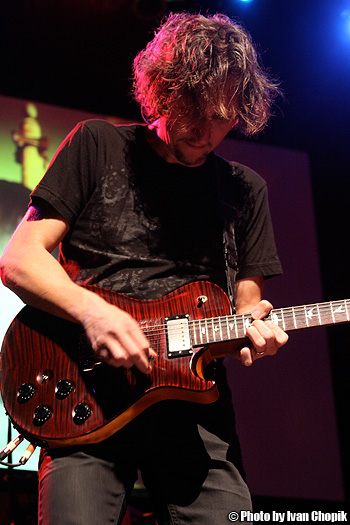
My songs are available on import, for twenty bucks a disc. I’m selling two CDs a week, and I’m paying ten dollars to twelve dollars apiece to get my own records to sell to people. So at some point, it was all about the art. I was like: ‘My god, I have all of this music and no gets to hear it!’ I would sell a couple thousand of each, and I thought: ‘I can’t go on and keep creating if I can’t share it. If people can’t hear it, then I have no reason to create it.’ And there was a movement kind of going that way with Napster and all that, and I thought: ‘Music’s free anyway.’
So as an experiment, I bought back all of my old catalogue from the record companies, put it all up for free download, and sent a couple emails to some forums and newsletters – and within the first week it had shut down the servers. And we figured out from the bandwidth of downloads that we’d done over 10,000 album downloads in the first seven or eight days. So I had to buy more space, and more server space, and it just kept going and going and going. Then right when I had figured out that we had done about 30,000 album downloads, my wife came up with the idea of [using] this FanBridge thing.
IC: The mailing list?
JW: Yeah, the mailing list thing. Before, all you had to do was go to the site and just take the music. Now, with FanBridge, if you go to the site, you just leave your email address and then you can have all the music you want. Now I have a direct link to the people who are enjoying the music.
IC: No middleman.
JW: No middleman. So for me, it’s great, because now I’ve got over 7,000 names, and that’s after the initial 30,000 album download hit. So I’ve got five albums up there, and there are all of these people that are downloading music, and a lot of those people want to own it. They want the CD, so I still make the CDs available.
I’m selling more now than I ever did with a record company. I’m very non-pretentious, I don’t have a gimmick – it’s just good songs that are very well done and have a lot of meaning, so a lot of people really connect with the music. But it’s not the Hollywood thing. With a record company, they want some sort of Hollywood to break you out and do this thing.
IC: Something trendy.
JW: Yeah, exactly. And for me, doing it as long as I have and being involved with Porcupine Tree – I’ve been doing the sideman thing since about ’97, I was a solo artist up until about ’97 – it doesn’t leave a lot of time for me to get out there and promote my own music. So a great way to promote my music is to get people that like it to promote it for me by sharing it, and it’s working great. Some people connect with it, some people don’t. So it’s been great.
IC: What would you say, financially speaking, is the backbone of your career at this point? You’re involved in a lot of different things.
JW: All of it together. People ask me all the time: ‘How do you make a living in the music business?’ Because I’ve been doing this a long time – I’ve raised a daughter, she went to college, I have a wife, I have a house, a life, you know. I own a small recording studio [RedRoom Recorders], that’s part of it. I write and get a little bit of income from the music that I sell. I do the touring sideman thing. I don’t teach at home anymore, just because I spend so much time playing that I don’t find that I have enough time to teach. I’ll go out and do seminars, like I’ll go out and do a week at GIT, which is part of Musician’s Institute in LA. I do that once a year.
Porcupine Tree will take eight, nine, ten months a year off, so for me as a player to not play live for that long, I can’t deal with that, and for many, many years I’ve done cover gigs to make a living and to fill the space – and even more than that to hone my chops, because I’ll do a cover gig playing for four hours a night.
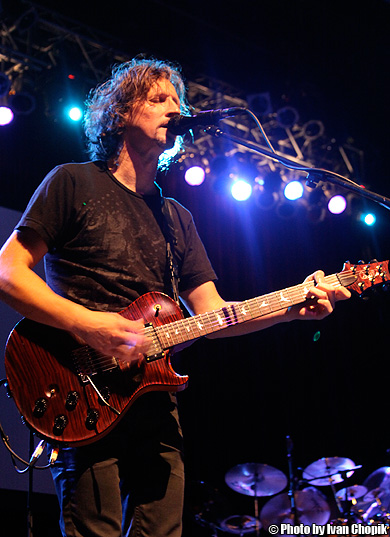
Well, for me, that’s not four hours a night of selling my soul to some cover gig – that’s four hours a night of learning other music and sharpening my chops. Whether it be sitting by myself playing acoustic guitar with a loop station in the corner of Joe’s Bar or playing on stage with Porcupine Tree, every gig is a learning experience for me.
I also learned this from a lot of the cats that I knew in LA – they’d come off the road with Pink and then next weekend they’d be out playing your wedding in a function band. Because you get a lot of this: ‘Man, we’re an original band. We played twice last month.’ And it’d be like: ‘Really? I played four hours tonight. I played more than you do in four month in one evening.’
So in LA, they’re like: ‘You know, man, it’s really not about what you do, it’s the fact that you do.’ You’ve gotta play. So a lot of people are like: ‘How do you get gigs like Porcupine Tree?’ I did some stuff with Sister Hazel, I did some stuff with Mike Tramp and other things, like the Fish stuff. It’s like: ‘Well, I’ve played live so much that I can walk right into it and just do it.’
IC: You have the experience that it takes to do that.
JW: I have the experience. So when I go home, man, I do gigs three, four, five times a week, to keep my chops up – plus I’m paying bills. So all of that together turns into a career. There are some mental things that go with it, too, because one night you’re [playing a sold out Porcupine Tree show] in London – literally four days later I will have flown home and be sitting in the corner of a bar, playing to three men and their dog, and only the dog wants to hear me. So it’s a thing you have to balance and manage to be able to do that, but I can’t live without playing. So whether it’s Joe’s Bar on the beach, or Boston’s sold out House Of Blues, I have to play.
IC: The Incident – what was your involvement with the recording of the album?
JW: Guitars.
IC: Did you do any of the background vocals?
JW: No, Steven had them done this time when he came. Steven just went on a really creative adventure, where he had this concept that just started happening. He programmed the drums, and he had this whole thing, and before we did the guitars, he sent me the demos, and the demos were phenomenal. What he can do with guitar plug-ins is mind-blowing. He uses [Line 6] Amp Farm pretty much exclusively as his guitar plug-in, and when he brings those sessions to me they’re fully formed, and he had done the vocals so well, they didn’t need to be replaced. So this time I didn’t do any background vocals.
IC: That’s a big part of your stage show – your and Steven’s harmonies.
JW: Yes it is, absolutely. I do a lot of work in trying to emulate his vocal tones and things like that. Luckily we’re similar, and there’s a definite conscious effort to blend.
IC: That’s what I was just going to say. Just listening to soundcheck, you guys were gelling – the two voices became one.
JW: Yeah, and that’s really important. The guitar work’s tough, but the vocals are an equal part of it. And that’s another thing – I practice that all the time. One of the great things about doing the solo gigs is it’s just you and an acoustic guitar, and if your voice sucks and you’re not on, there’s no hiding it. You can’t hide it, and years and years of doing that four hours a night, five days a week, sometimes a four hour gig in the afternoon and a four hour gig in the evening – has really brought a lot of experience to my voice.
IC: What kind of gear do you use live with Porcupine Tree, and in general what makes up your signature sound?
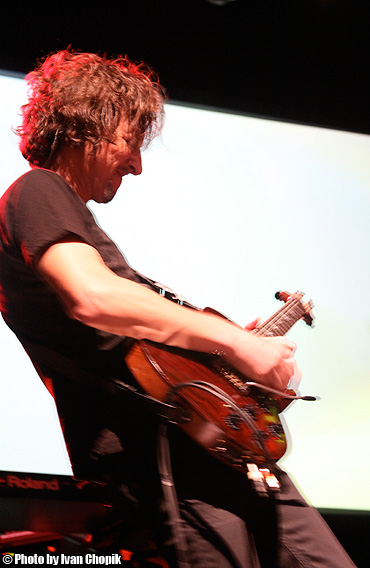
JW: I’ve been using the Bad Cats, because in the early days we were kind of economically challenged in what we could carry. Normally, I’m a Marshall guy from way back. I mean, my ultimate dream rig from way back – at one point it was two Marshall 6100 heads and two 4X12s in stereo, and a rack of stuff. It was huge sounding.
The problem with that is it’s so expensive to ship. So when I took this gig Steven and I got these Bad Cat combos, because they’re hand-wired – they were Hot Cats. Out of the box, man, you just plug those things in and they rip like a Marshall! They’re EL34 based. So I was getting really close to my old tone out of a 30 watt combo, and he was, too.
Then a couple of years ago we got to the point where we could add 4X12s, and when we went back to 4X12s he bought the Lynx rigs by Bad Cat – he has three of the Lynx rigs on tour. And again, those are kind of Marshall based, but more aggressive – EL34 based, but even more aggressive, hand-wired. That kind of aggression wasn’t really my thing, so I took that opportunity to go back to what I started with, with Marshalls.
So I bought a modded 1978 JMP 100. It’s modded to hell and back – a guy named Mark Cameron modded it. That head is actually responsible for the last couple of records – The Incident and his solo record, and then one of my other Marshalls did most of the work on the record before that. The other thing about it that’s nice, is that I’m using the old Marshall gear and it’s a nice contrast between the real aggression that he gets out of the Bad Cat, and I get more of a classic 70’s kind of tone. So the two of them really complement each other.
IC: I’m sure you crank it.
JW: Oh, it’s cranked. Yeah. But the cool thing about the mods is… there’s a guy named Dave Freidman in California that does amazing mods for not too much money – it’s still loud as God, don’t get me wrong – it’s loud. But it’s not nearly what you had to do before, because the mod makes the tone come out with a lot less volume. So I don’t have to use a Hot Plate or anything, it just goes. It’s a 100-watt Marshall cranking, and it’s just perfect.
IC: As far as some of the floor effects – you don’t use rack gear, right?
JW: No, we got out of that. We both did – he had a Bradshaw rig, and I had a GCX rig, which is basically a Bradshaw rig that I built instead of Bradshaw. So we had all of our pedal effects in the rack-mounted switching systems and MIDI controllers on the ground, and it was like: ‘My God, we’re shipping these 130-pound racks and pedalboards and amp rigs.’ I was looking for a solution to eliminate the switching system, and there’s a guy in England that makes a system called the GigRig, and what he does is he takes a Bradshaw-style design and puts it in a floor unit – and it’s unbelievable.
I put a TC Electronics G-System in the loops, put in all of my favorite old analog effects – just the different colors, all of my favorite gain boxes, looped them into this GigRig, and I had my ultimate rig and no rack. I had a 70-pound pedalboard that I could fly as checked luggage! So when I get a call to do a gig – like I said, sometimes I get a call to fly out and cover somebody – I literally check my pedalboard and strap my guitar on my back, and I have my switching system.
So it eliminated my 150-pound rack. Then Steven liked it so much that we built him a rig based around the same idea, and he eliminated his rack system. I do more with this rig than I ever did with my rack rig. I can’t even count the number of effects – I think I have 14 things going through it. I’ve got it switching my amp channels, switching a piezo in and out, blending a delay and a [TC Electronics] Nova System separate from the rest of the rig, and an effects rack. Then I have all of my favorite old boxes in front of the amp, and it’s just amazing. And it’s just a 70-pound box.
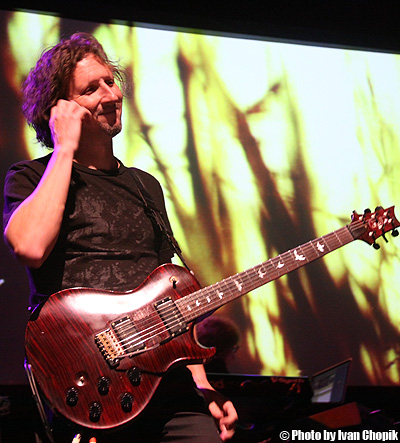 [Steven’s] rig is the same thing. Actually, I got away from using the G-System because his original G-System went down, and I gave him mine. He’s still using that one. Then I bought one of the little TC Nova Systems for the super-weirdo effects. Because one of the things that Steven does when you record guitar tracks with him is he’ll take them home, and use all of his plug-ins to torture them, make them into things unrecognizable as guitar.
[Steven’s] rig is the same thing. Actually, I got away from using the G-System because his original G-System went down, and I gave him mine. He’s still using that one. Then I bought one of the little TC Nova Systems for the super-weirdo effects. Because one of the things that Steven does when you record guitar tracks with him is he’ll take them home, and use all of his plug-ins to torture them, make them into things unrecognizable as guitar.
So to cover some of those tones, I’ve got to have one of those TC boxes, so the Nova System’s working great for me. He’s using the G-System and I’m using the Nova System, and that comes in for all of those weirdo tones. It’s really cool.
IC: Can you tell me something that you’ve never mentioned before in an interview? It can be a story, or something about yourself…
JW: I talked about how I’ll cover gigs sometimes – one of the first times I ever covered a gig for Sister Hazel, I got a call on a Wednesday: ‘Dude, Jett’s wife’s gonna have a baby Friday night. We’re going to be at Universal on Saturday -12,000 people there. Can you cover him on bass?’
I play bass, so I said: ‘Sure, I can cover him on bass.’ So he said: ‘Here’s the setlist.’ So I had one of the records, I went out and bought the rest of the records, and I sat down and charted everything out on bass. I had this whole list that I thought we were going to rehearse.
So I show up at the gig and it’s this big stage and I walk up, I play Jett’s bass rig, plug my bass into it, and they go: ‘Yeah, we’re gonna do a tune, do this.’ We did a song, and they were like: ‘Great. Awesome. Sounds great.’ So it’s like: ‘Um, rehearsal? We’re playing for an hour and a half.’ And they’re like: ‘No, dude, you got it.’ And I’m like: ‘Really?’ So we walked up onstage and played for an hour and a half and it was great. And I was kind of sweating it, because I’d never played any of this music with them before, but it worked great.
So we went on for the encore, I’m feeling great, my wife’s out there, there’s 12,000 people – the place is going nuts. And they’re like: ‘Come on, we’re gonna go back up and do the big hit.’ I think it was called ‘All For You,’ and we walk up onstage, and: ‘Yay! Big encore! Wooo!’ And I go into the first notes of the song, and something’s horribly wrong. I’m hearing something terrible.
I’m looking at my chart, and I’m looking at my hands, and I’m looking at my chart and I look, and there’s a singer/guitar player, a lead guitar player and a singer/guitar player – all three heads are turned at me. And I’m looking at my chart, I’m looking at my hands, and the lead singer just mouths to me: ‘Oh, dude – sorry. We capo down a half step for this one.’ It was like: ‘Oh, my God.’ And the lead guitar player tells this story, because he remembers looking at me, seeing my head turn and go: ‘Okay.’ He remembers to this day seeing me do that. So there I am transposing the chart, as we’re playing it, by one half step. And that is not [easy]… it sounds easy!
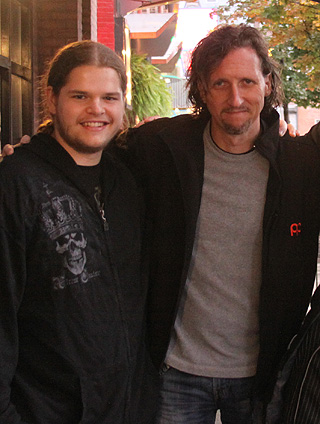
John Wesley and Ivan Chopik in 2009
IC: No, it doesn’t sound easy [laughs].
JW: Because you’re looking at this going: ‘A! No, it isn’t. Ab. Jesus Christ. D! No, it isn’t. C# [grunts].
IC: That’s a challenge.
JW: It was a challenge. That was an interesting hidden event in my career. But, you can laugh now [laughs].
IC: Can you give some advice to aspiring musicians looking to break into the industry?
JW: Absolutely I can. The industry has changed. When I came up through the 80’s, there were what we called kingmakers. Kingmakers were the guys in the big record companies and the management companies – there’d be 20 bands out there that were all valid, 20 sets of musicians that were creating valid music, and they’d go: [points] ‘That one.’
And because of the expense and the involvement in recording, if you weren’t made by the kingmakers, you couldn’t make a record. You couldn’t express your art. You couldn’t get your music out there, and eventually most of them would just give up on music as a whole. Well, nowadays, it’s different. There is no kingmaker stopping you from making music. If you want to make music, learn how to record it – the technology is there for under a couple thousand bucks.
Get in your garage, make great recordings… in your mother’s bedroom, like Steven mixes records in a bedroom in his mother’s house. That is No Man’s Land. Get out there, create and play. Some guy asked Steven today: ‘What advice can you give me? I’m going to college, I’m doing this.’ He goes: ‘I’m not doing anything.’ I just went up to the guy, and I said: ‘Just do what he does – make music everyday.’ And that’s the secret. People ask how Steven does it – five days a week, five to six hours a day, Steven makes music. So that’s my advice – make music every day.



